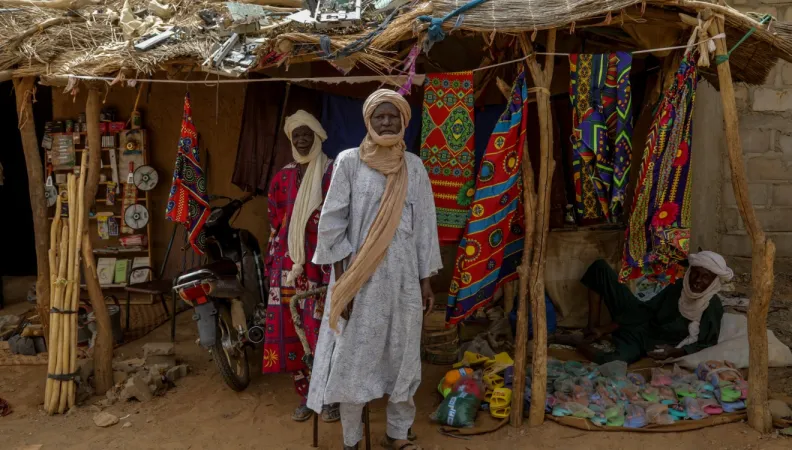Share the page
Covid-19 and Countries in Conflict: "Serious Social and Economic Impact"
Published on

Promoting peace is a major commitment of Agence Française de Développement (AFD) Group, in particular via the Minka Fund which finances peace-building in territories affected by violent conflict. Charles Tellier, Head of the Fragility, Crises and Conflicts Division at AFD, takes a look at the consequences of the coronavirus crisis for vulnerable countries.
Covid-19 is killing hundreds of thousands of people around the world. What is the impact of this pandemic in fragile countries?
We are experiencing a health disaster, and it has a very serious social and economic impact for all the countries affected. There are far more damaging consequences in countries that are already gripped by a sociopolitical crisis or armed conflicts. The epidemic could catalyze existing tensions with a threefold effect: a risk of a rise in acts of violence in the event of tensions between the population and government officials, a risk of the current crisis being instrumentalized by armed groups and a risk of xenophobic violence.
This unrest will have extremely serious consequences in areas where part of the population is often in a highly precarious situation. According to the projections of the World Food Program (WFP), unless swift action is taken, the number of people facing a food crisis will rise to over 250 million by the end of 2020. This is double the figure for 2019.
I have in mind refugees and forcibly displaced persons all over the world. In the Sahel region, around Lake Chad, where ten years of conflict have forcibly displaced 2.5 million people, this could escalate the violence, cause new forced displacements and hinder agriculture and trade. In the Middle East, the drop in the value of the currency in Lebanon and Syria will further complicate access to food.
How can AFD Group and other donors help fragile countries cope?
AFD Group is actively working to help the most vulnerable countries cope with the Covid-19 crisis. In early April, France launched a €1.2 billion dedicated initiative, “Health in Common”. Donors can contribute to building the capacities of States to provide care for all, rebuild relationships of trust and support the reconstruction of efficient and fair institutions. If it is properly managed, the coronavirus response can also be seen as an “opportunity”: an effective management of the epidemic can be a vehicle for restoring social ties and building sustainable peace. We can clearly see that a health crisis is also political.
It is essential to identify the populations that will be more vulnerable to the virus: the poorest and displaced persons. Once they have been identified, we need to be aware of the risks they face: a reduction in income, the disruption of health services and the inability of host countries to receive refugees, as well as the reduction in the response capacity of humanitarian organizations due to the travel restrictions.
Consequently, it is essential for development actors to implement a swift, concerted and multi-sectoral emergency response. It requires taking the community dimension into account and a thorough understanding of the social context of the country, to make sure that populations and communities that are already marginalized or vulnerable are not left behind.
We need to devise projects with partners that have a strong capacity for action, scale up our activities to promote social cohesion and ensure that vulnerable groups account for a large proportion of the beneficiaries of our projects. To this end, it is essential to work more with humanitarian actors. AFD is stepping up its dialogue with ICRC, UNHCR and the many French, international and local civil society organizations that help these most vulnerable populations every day. Providing sustainable responses to the many risks these populations are facing is the only way to make them more resilient.
How can we plan for the post-coronavirus crisis in countries affected by crises or armed conflicts?
One of the challenges lies in rebuilding a fairer and more environmentally-friendly social contract. The response to the health emergency must be part of a sustainable, socially acceptable and fair development perspective. The Covid-19 crisis must encourage our progress in coordinating the emergency response, post-crisis efforts and the recovery of societies in conflict, with the aim of achieving lasting peace.
